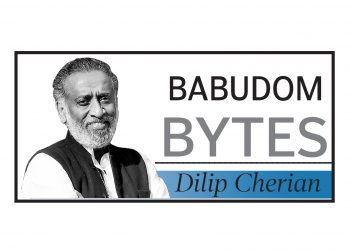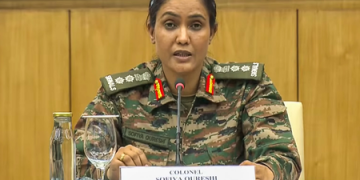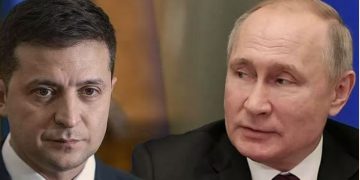The “heaven-born” often catch a lot of flak, usually when they are seen as misusing their privileges or as pliant tools of their political masters. But many IAS officers get appreciated for silently going about their work, often below the radar. Certainly, it’s not often we hear of IAS officers winning international plaudits.
Rajasthan cadre IAS officer Sandeep Verma was selected for the “Best Paper” award at an international conference on data analytics organized by the Arun Jaitley National Institute of Financial Management. Verma is the CMD of Rajasthan State Road Transport Corporation and is considered within babu circles as a specialist in public procurement systems.
Sources have informed DKB that Verma is a familiar presence at international conferences where he is widely sought for his insights and expertise in public procurement reform and project management. His specialty is in using public procurement rules to increase domestic manufacturing and stimulate innovation in high-tech areas.
During his career, besides his regular postings, Verma has reportedly trained nearly 2,000 senior IAS officers and military officials on various aspects of defence procurement, government contracts and project management. He has influenced the defence procurement procedures and helped draft the public procurement rules for the Assam government, among others. Most recently, Verma drafted a new public-private partnership policy for his cadre state of Rajasthan. During his stint as Home Secretary in Rajasthan and other postings, Verma has contributed immensely to increase professionalism in project management in government departments.
Clearly, the IAS officer is equally at home in the power corridors as well as the rarified environs of the IAS training academy in Mussoorie and influential think tanks.
Ex -cops to probe serving IPS officers
The Gujarat Home Department has named two retired IPS officers Anup Kumar Singh and Keshav Kumar to lead preliminary enquiries (PE) and departmental enquiries (DE) against any IPS officers who are accused of corruption.
The move has raised eyebrows since traditionally such enquiries are conducted by a panel of officers in the Home Department. But in recent times, there have been some instances where allegations against top-ranking IPS officers have been probed by other serving IPS officers. Recently, former Rajkot police commissioner Manoj Agarwal was transferred as Principal of the State Reserve Police Training School following an enquiry report against alleged corruption.
The reason that ex-IPS officers have been chosen to conduct enquiries is that serving IPS officers are already occupied with their own portfolios and cannot devote time to conducting preliminary enquiries, which delays the process. Also, Additional Chief Secretary (Home) Raj Kumar admitted that the government realises that serving IPS officers conducting a PE or DP against another IPS officer is not ideal, and can compromise the enquiry.
While this would be evident to anyone, babu or not, the appointment of Singh and Kumar is meant to send a signal that the government wishes to be seen as impartial in inquiries against senior state cops.
Centre eases off on changing IAS cadre rules
The acute deficit of All India Service (AIS) officers that the Centre faces is likely to get prolonged. The proposal to depute IAS, IPS and IFoS officers to the Centre without the approval of their respective state governments has been shelved for the time being, DKB has learnt.
In 2021, only 10 per cent of mid-level IAS officers were posted with the Union government, a sharp dip from 19 per cent in 2014. The best indication of the deepening crisis can be seen in the recent appointment of 23 joint secretary-rank officers in various ministries. Only six were IAS officers and one from the IPS. The majority are from other Central services.
Now the reason for this shortfall has emerged, in the Department of Personnel and Training (DoPT) response to an RTI query. The DoPT has stated that a final view on the proposal is yet to be taken and that DoPT cannot disclose the information held in a “fiduciary relationship”. Reading between the lines, what this means is that the Centre has put off the proposal due to stiff opposition from officers in the states. At least eight states including Odisha, Meghalaya, Jharkhand, Rajasthan, West Bengal, Kerala, Tamil Nadu and Telangana have opposed the move. The political faultlines are only too apparent.
For now, the Centre has prudently decided not to push further. It already has too many irons in the fire. But once it refocuses on the issue, the battle will surely be resumed.
Share a babu experience! Follow dilipthecherian@twitter.com. Let’s multiply the effect






































